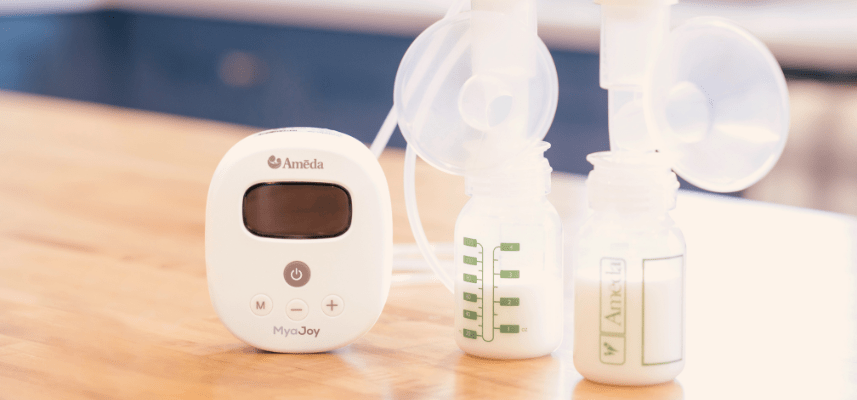There is no denying that caring for a newborn can be extremely exhausting. It can be challenging trying to figure out how to get enough sleep, especially the first few weeks after bringing your newborn home. Between feedings, baby care, sleep deprivation, and monitoring your postpartum health, you may be wondering how you are going to survive the postpartum period. But trust us, mama—you are not alone in this fourth-trimester struggle.
New moms need to take care of themselves, too! Even though it is common for the focus to be on your new baby and balance family life, we want to raise awareness about postpartum physical and mental health for mamas, as well, especially during the first six weeks. Here are our tips for you exhausted moms to help you kick your exhaustion to the curb and find your rhythm in this new journey.
Tips for Moms and Parents
Many moms want to do it all, but this might not be what’s best for you or your baby. If mom isn’t at her best, baby can’t be, either. Trying to become the do-it-all “SuperMom” can quickly lead to mom burnout, lasting fatigue, and a lot of stress/mental load. These are some of the tips we give to new mamas to help them reduce stress and get as much time to heal and rest as possible.
Nap, Nap, Nap
You know the adage "Sleep when the baby sleeps?” There’s a reason it’s so popular, and it’s one of our favorite tips for new tired moms! As unrealistic as it may seem, getting sleep (whenever you can get it) is one of the best forms of self-care for new parents, and ample rest will have a noticeable impact on your well-being in the postpartum period. Rest is one of the primary ways your body heals after giving birth. Newborns get 16 hours of sleep a day for about 20 to 50 minutes at a time. Understandably, you may want to use those chunks of time until they wake up to get the other never-ending tasks done before the end of the day, but trust us: the more naps you're able to squeeze in, the better you'll feel.
Eat Well, Stay Hydrated, and Exercise
Nourishing your body is extremely important for hormone regulation, muscle healing, and brain function. If you are not eating well, your body will not receive the nutrients it needs, and your energy will suffer. We love this online tool from the US Department of Agriculture that suggests healthy meal plans based on your unique breastfeeding needs.
Keep yourself hydrated, especially while you are breastfeeding, and squeeze in exercise when you can to boost your energy and feel-good hormones, but remember to take it easy. Exercise postpartum can look like any movement approved by your doctor, including dancing around the kitchen or a slow walk. You don’t have to run a marathon! When you’re ready, you can take some time for yourself, by letting dad or a support partner take care of your little one while you go for a walk or grab a nourishing meal with a friend.
Pay Attention to Your Body
During the first few months postpartum, it's normal to experience tiredness, a dip in energy levels, and other fatigue symptoms, especially when your baby's sleep patterns aren't established and they want to breastfeed throughout the night. Many moms also experience “baby blues” during their first few days postpartum as their bodies adjust to hormone swings, lack of sleep, and all of the other physical and mental changes that come with having a baby.
However, keep an eye out to make sure you're not experiencing more severe or long-lasting depressive symptoms or other health issues. Postpartum depression (PPD) is one of the most common health problems for postpartum women. Symptoms may include difficulty bonding with your baby, hopelessness, and thoughts of harming yourself or your baby, among others. If you think you may be experiencing PPD, please reach out to your healthcare provider. The postpartum period is hard, but help is available. With the right support and/or treatment, you can get to a happier, healthier frame of mind.
Ask For Help
It’s okay to let other people step in! Try to spread the workload with other caregivers, if possible. It’s okay to reserve your energy and attention for simply sleeping, eating, and feeding your baby. Trying to manage a newborn is not easy, and it doesn’t make you a bad parent to let a trusted friend, family member, partner, or caregiver/babysitter do some laundry, cook, or watch the baby while you shower, take a nap, or take some quiet time.
While it may not be feasible for everyone, hiring someone to help with childcare or housework can also help reduce mom fatigue and parental burnout. You may feel like you need to be on top of everything—but this is a difficult time, and you are not alone in this chapter. You do not have to be multitasking. Cut yourself some slack!
While recovering, especially in the first few weeks, consider having groceries or meals delivered to your house. Every little bit helps! The most important thing is taking care of your baby and your mental and physical health.
Lower Your Expectations
The beautiful part about starting this new journey is that everyone is learning—both you and your baby. Even if you are not a first-time mom, every baby is different! This can be a bit scary but it’s also part of what makes being a parent so special. Don’t be surprised if you question things you thought you had perfected the first time around. You and your baby are growing together. Cherish this time with them and expect the unexpected! There is no one-size-fits-all approach to any breastfeeding, pumping, or the newborn journey. It takes time to figure out what your baby likes and dislikes and what habits suit them best. Take each day as it comes, embrace the unknown, and give yourself a pat on the back, mama!
Remember: This new-mom exhaustion won’t last forever. You’re doing your best, and that’s more than enough. If you have any questions about your postpartum journey, check out our First 42 Days page, which details many common experiences, complications, and celebrations you may experience in your first six weeks after giving birth.
You can also reach out to one of our lactation consultants for specialized breastfeeding or pumping assistance and join our Facebook social media community, “The Pumping Room,” to hear from other parents and support partners on their journeys and get advice from our clinicians.
To check your eligibility for a free breast pump, fill out our Qualify Through Insurance Form today and let us take care of the rest. Once you have submitted your insurance information, one of our specialists will verify your insurance and let you know what your free and upgraded breast pump options are. You're eligible to apply at any point during pregnancy and through your first year postpartum.
References:
-
https://www.mayoclinic.org/healthy-lifestyle/labor-and-delivery/basics/postpartum-care/hlv-20049465
-
https://www.cdc.gov/nutrition/resources-publications/benefits-of-healthy-eating.html
-
https://www.myplate.gov/life-stages/pregnancy-and-breastfeeding
-
https://www.webmd.com/baby/what-to-know-staying-hydrated-while-pregnant-breastfeeding
-
https://americanpregnancy.org/healthy-pregnancy/first-year-of-life/baby-blues/
-
https://www.mayoclinic.org/diseases-conditions/postpartum-depression/symptoms-causes/syc-20376617











